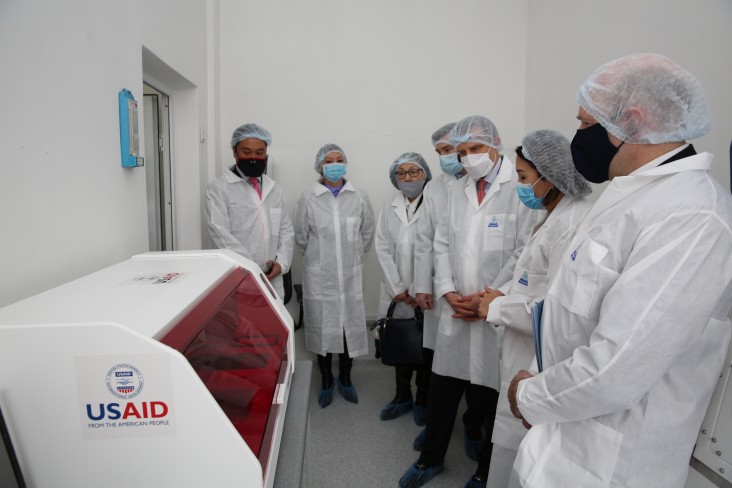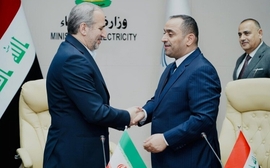The United States delivered $6.2 million worth of aid to Kazakhstan in 2020 as part of its global efforts to fight the coronavirus pandemic. The financial assistance was provided through the US Agency for International Development (USAID) and Centers for Disease Control and Prevention (CDC).
Supporting Kazakhstan’s efforts to respond to the COVID-19 pandemic, the funds were allocated to four broad areas.
These included supply of personal protective equipment (PPE), as well as essential laboratory and testing equipment to the most needed regions across the country. In addition, the assistance provided for skills training for healthcare workers to adapt to COVID-specific needs in infection prevention and control. For example, the USAID Local Health System Sustainability program received $2.7 million from the US. government to provide timely and quality support to health officials in Kazakhstan. More than ten regions in Kazakhstan, including national leading centers, were provided with essential laboratory supplies, reagents, and equipment as part of initiative.
Also, USAID provided $351,280 to International Federation of Red Cross and Red Crescent Society (IFRC) to raise public awareness about the prevention measures of COVID-19 in collaboration with Kazakhstan Red Crescent Society.
Earlier this month, US officials visited the Scientific and Practical Center for Sanitary and Epidemiological Expertise and Monitoring in Almaty, Kazakhstan largest city, to see the laboratory equipment being used in the country. During the visit, US Consul General Eric Meyer said Washington was eager to further develop cooperation with health officials in Kazakhstan to fight the pandemic.
“We stand ready to expand our cooperation with the Ministry of Health and the Government of Kazakhstan,” said Consul General Meyer, according to a report issued by USAID.
“The US government promotes transparency in public health systems and open information ecosystems. The free exchange of information is critical to overcome this pandemic and build resilience to future health risks. We look forward to openly exchanging data with the Ministry of Health and its institutions to better collaborate and cooperate in combating COVID-19 in Kazakhstan,” he added.
The number of global coronavirus cases continues to rise, with more than 80 million confirmed cases and over 1,7 million deaths recorded in more than 200 countries and territories. The coronavirus cases in Kazakhstan reached 150,198, with 11,637 active cases, according to the government data.
Earlier this week, Kazakhstan launched local production of “Sputnik V” — a Russian-made vaccine against COVID-19 developed by the Gamaleya Research Institute of Epidemiology and Microbiology. The initiative follows an agreement signed this summer by the presidents of the two neighboring countries.
The complex will produce two million doses of the Russian-made vaccine claimed to be “the first in the world.”
According to Kazakhstan Prime Minister Askar Mamin, who launched the production, mass vaccination with “Sputnik V” will begin in February 2021. The first to get a non-mandatory vaccination will be healthcare workers, teachers, students, law enforcement officers, staff of healthcare and social institutions, as well as at-risk citizens.
At the same time, Kazakhstan is also considering purchasing AZD1222 — a COVID-19 vaccine candidate developed by Oxford University and AstraZeneca, a British–Swedish multinational pharmaceutical and biopharmaceutical company. In addition, researchers at the Kazakhstan Research Institute for Biological Safety Problems have been developing their own vaccine.







 The number of evacuees from flooded areas in Kazakhstan has reached 97,852 people, including about 32,856 children since March 27.
The number of evacuees from flooded areas in Kazakhstan has reached 97,852 people, including about 32,856 children since March 27.
 The Islamic holy month of fasting, Ramadan comes to an end this week with the celebration of a joyous festival called Eid (meaning “festival” in Ar...
The Islamic holy month of fasting, Ramadan comes to an end this week with the celebration of a joyous festival called Eid (meaning “festival” in Ar...
 Iranian President Ebrahim Raisi warned Israel that it would face a "real and extensive" response if it makes any "mistake" following Tehran’s missi...
Iranian President Ebrahim Raisi warned Israel that it would face a "real and extensive" response if it makes any "mistake" following Tehran’s missi...



